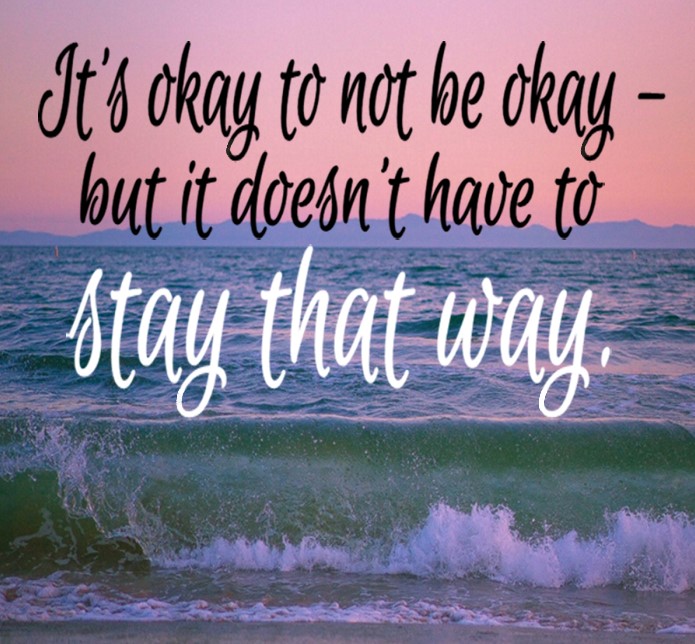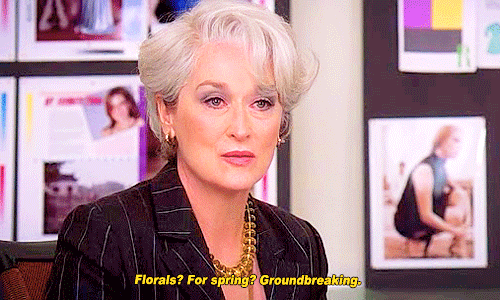I am one out of every five people who has directly experienced moderate to severe anxiety. If you’re in this club as well, welcome! You’re in fine company with people like Oprah, Adele, Michael Phelps, Emma Stone, Stephen Colbert, Kristen Bell, and Ryan Reynolds. (Having something in common with that last one especially sparks a little joy, amirite?)
In fact, anxiety disorders are the most common mental health issue in America, affecting about 40 million adults, or 18% of the population. Please don’t have shame in having anxiety, because there is hope: it is considered by experts to be the most easily-treated mental health issue, and I am a personal testament to that after privately struggling with it on my own for two decades before I sought help. Not only can you cope, you can thrive.
I Hear the Word “Anxiety” A Lot. What Exactly Is It?
Anxiety is a mental and physical reaction to an external trigger. It starts when the brain senses a threat and responds by signaling your body to react to help you stay safe (This is a basic survival instinct known as the “fight or flight” response.)
Anxiety is different than fear: we feel fear when there is an actual threat but we feel anxiety when there is an anticipated threat, which may or may not occur.
For example, if there is a spider actually on my pillow, fear causes me to freak out. But worrying about the possibility of a spider on my pillow once it is already gone is anxiety.
The amygdala (pronounced “ah-MIG-dah-la,” say that after a few cocktails) is the part of your brain in charge of worry. Think of it as the lookout on the Titanic, ready to holler and ring the bell if danger approaches. When it senses a threat, your amygdala swings into action by signaling your central nervous system to release stress hormones such as adrenaline, cortisol, and norepinephrine into your body to heighten your natural physical abilities. (If you are picturing the movie scene when the lookouts holler, “ICEBERG, RIGHT AHEAD!” and the subsequent chain of events to turn the boat, then you are correct and I applaud you for your awesomeness.) Something like that is going on in your brain and body to help you stay safe.

Isn’t That a Good Thing?
Absolutely, in the right circumstances and for a short amount of time. Adrenaline can give ordinary people super-hero strength, like the story of a mother who could lift a car to rescue her child, or why so many athletes set personal records in the Olympics, or how you can (hopefully) judo-chop or duck from something flying at your face.
But our bodies are not meant to be in this state of hyper-alertness for long. Usually, once a threat is gone, a part of your brain called the hypothalamus sends an “Okay it’s all good now, you can chill” message to your body to stop releasing stress hormones, so you can relax.
Got It. But If There Isn’t A Physical Threat, Why Do I Still Feel Anxious?
While some events like a job interview, public speaking, or a looming deadline don’t threaten your actual safety, they can cause you to feel threatened.
Emotional fears, such as not fitting in, being rejected, getting fired, making a mistake, feeling embarrassed, or getting harassed can be just as vivid as physical fears.
So, the handy-dandy amygdala signals the release of stress hormones, which is why you may feel physical sensations in these situations, like a faster heartbeat, shallow breathing, increased sweating and tension, or an upset stomach for an emotional fear.
It’s natural for certain situations to trigger slight anxiety or unease, and your body’s response can actually help you by increasing your alertness and performance (like making it through a 3-hour conversation with your husband’s Great Aunt Gertrude during the holidays.) However, TOO much anxiety can have a negative effect, causing you to feel overwhelmed, physically ill, unable to maintain control, tongue-tied, short of breath, etc.
How Do I Know the Difference Between Normal Worrying and an Anxiety Problem?
Anxiety problems occur when the emotional areas of your brain often overpower the thinking areas of your brain, so you can’t easily recognize that the threat has stopped or isn’t real. This may leave you feeling tense and highly alert, without the superhero perks. That state of mental and physical stress can consistently linger for hours, days, months, or years. If you find yourself regularly feeling worried, tense, unable to sleep, and with an almost permanent feeling of unease that is disproportionate to your situation, that may be an indicator of a mild to serious anxiety problem. More severe anxiety may look like a regular state of feeling intense dread or panic.

Other people may not experience chronic feelings of anxiety but could struggle with severe anxiety or panic attacks that come seemingly out of nowhere. (Lookin’ at you, Jessie Spano.) You might feel perfectly fine, then BAM, a sudden sense of panic makes you feel like you can’t catch your breath or calm down. The person experiencing panic attacks genuinely feels terrified, even if they aren’t in any danger.
Bottom line: There are many different kinds of anxiety, so it’s best to leave an official diagnosis to a mental health professional. But if you feel like your general well-being and sense of happiness is regularly uprooted by anxiety, that is a key indicator that you may have an issue.
Why Do I Even Have Anxiety? It’s Obnoxious.
Indeed. Anxiety disorders can develop from several factors, like genetics, personality, life experiences, and chemical balances in your brain.
It’s important to remember that your brain (an operating tool) is different than your mind (your personality, beliefs, knowledge, and wisdom.) Our brains are extremely efficient; once it is used to doing something a few times, it can do so without a conscious effort. Kind of like your first time driving home from a new place: you may have to concentrate on the route the first couple of times, but then you can do it on autopilot. That is because the synapses, or transmitters in your brain, have gotten stronger and more efficient at that particular task.
The same goes for worrying: Once your brain gets used to over-thinking, over-analyzing, or over-worrying, it can do so subconsciously. This is why it’s a struggle to stop worrying, even when someone is desperately trying to not be anxious, as it causes genuine anguish. Believe me, we don’t want to suffer. But the synapses, or transmitters, in the brain can get too strong to just brush off, which is why it’s not helpful if a well-meaning person simply tells you something like “just stop worrying.”
OH MY GOD WHY DIDN’T I THINK OF THAT YOU’RE A GENIUS AND THANK YOU FOR BEING THE DALAI LAMA. Oh wait I’ve already tried about 8 million times. But thanks.

Some people (ahem, me) also feel shame or embarrassment for even being this way, so you literally have anxiety over having anxiety, especially if someone can’t understand why you’re worried.
Makes Sense. What Can Be Done to Help Control Anxiety?
Anxiety disorders are highly treatable, but less than 37% of those suffering receive treatment. I was professionally diagnosed with anxiety in my early thirties after living with it in some way or another for about 20 years. I used to think “I’m just a person with anxiety” and accepted that.
But I was so wrong. I am a testament to the fact that it’s very possible to “retrain your brain” to think positively and make new synapses, rather than snowballing into anxiety. This made a world of difference on my general happiness and sense of control in my life.
Also remember: “Treatable” may not mean it totally vanishes, so don’t feel like a failure if anxious thoughts occasionally start lurkin’ like a creepster.
I once thought that I should be able to eliminate my anxiety and only ended up feeling defeated when it came on. A better term is, I know now how to successfully manage my anxiety. Usually, anxiety is in direct proportion to the amount of stress in my life. When I start to feel those familiar gray “what ifs…” swirl around in my brain, I immediately do something that helps to clear my mind, like take a hot shower or exercise. I also utilize these tips:
· Talk to Someone – Fear is always strongest in our own minds. Saying it out loud or writing it down can take away some of its power. Sharing how you are feeling with a trusted friend or family member, partner, or professional can be life-changing. Remember, anxiety IS treatable, but it may take time. Find someone who will listen and can help give you the tools and knowledge you need to feel your best. Often times, we don’t bat an eye at the thought of seeing a doctor for a temporary physical problem, like the flu or a broken bone. Let’s break down the stigma that prevents us from seeing a doctor for a mental ailment, because most mental health problems ARE in fact physical ailments, likely due to a chemical imbalance in the brain. There is also NO SHAME if you need to take anti-anxiety medication to feel better. The #1 New York Times bestselling author Glennon Doyle says it best: “Jesus loves me this I knowwww, for He gave me Lexaprooooo.” If this isn’t possible for you, here are some other things that may tame that anxiety beast:
· Breathe Although the brain sends messages to your body (such as to cover your mouth when you sneeze), your body can also send messages to your brain. When we feel anxious, our breathing becomes shallow, sometimes without us even realizing it. Taking deep breaths signals your brain to stop releasing stress hormones, which can help you feel more relaxed and at ease. When anxiety starts to take hold, take deep breaths, in through your nose and out through your mouth. As opposed to the shallow breathing or holding of breath that sends warning signs to your brain, deep breathing can tell your brain that you are, in fact, safe. So basically, people hyperventilating into a paper bag on TV are on to something because they are BREATHING. Meditation apps and breathing exercises are also extremely helpful.

(Background image courtesy of Jeremy Thomas / Unsplash)
· Identify the Threat –It’s very common for people with anxiety to not be able to pinpoint exactly what is causing them to feel anxious. Anxiety, like a Halloween costume, is scariest when the mask is on. Once you know what you are anxious about, you can start thinking of how to deal with it. After I identify this “worst case scenario,” I also like to create a game plan for what I can do IF that worry actually happens (and most of the time, it doesn’t.) For example, I had a lot of anxiety over my first kid starting Kindergarten, but I wasn’t exactly sure why; I just knew that it bothered me. I started breaking down the why and eventually figured out that I was most nervous for her to get picked-on, bullied, or excluded. I didn’t even have a particular reason to fear that, other than the fact that it was something I occasionally experienced in school. This helped me recognize that no, I can’t always control how people will treat her. But what I can control is building up her confidence, teaching her about kindness and empathy, and giving her tips on what she could do if that ever happens. A problem is much less threatening when it is paired with a solution.
· Know that Thoughts Are Just…Thoughts – Researchers estimate 70,000 thoughts run through our mind on any given day. I can think “the grass is orange” or “the sun is black” but that doesn’t make it true. The same goes with worrisome thoughts. I used to wrongly think they were some sort of premonition or warning that I needed to act on. Nope. As much as I would like to think so, I’m not a prophet or a wizard. (The owl with my Hogwarts invitation is surely just lost, right? Right?!)
I say this with the caveat that this advice is for people with anxiety problems who have these thoughts of doom on the regular, which are truly impacting their happiness and daily functioning. Always remember that there are certain scenarios when you absolutely need to TRUST YOUR GUT. Our instincts are there for a reason and could be life-saving. Obviously don’t go skipping down a dark alley at night by yourself while ignoring the DANGER! DANGER! alert in your brain as just a random thought to not take seriously.
· Mindfulness – If you feel like your anxiety is controlling you irrationally, try having the presence of mind to label it before you start drowning in it. Basically, calling a spade a spade and thinking something like “aha, there goes my obnoxious anxiety again” when it flares up is helpful. I’m a visual learner, so I like thinking of it as a referee in my brain, ready to call a penalty. Dr. Jeffrey Schwartz, who has successfully helped thousands of patients with Obsessive Compulsive Disorder and anxiety, describes the benefit of imagining this “Impartial Spectator” in his fantastic book Brain Lock: “People…use the Impartial Spectator when they take a step back and say to themselves, ‘this is just my brain sending me a false message. If I change my behavior, I’ll actually be changing how my brain works.’”
This mindfulness can help you recognize and label such thoughts as anxiety, rather than blindly responding to them as fact. As you become more aware and less reactive to the anxiety, it becomes less prevalent in your brain.
Just like it’s hard to complete a task when you keep getting interrupted, you can make it harder for you brain to worry by interrupting the thought. Your brain gets distracted from its worrying efficiency, which makes it harder for it to do it well. I like to think of my Impartial Spectator as Octavia Spencer. If I can’t be her BFF in real life, it’s the next best thing.

· Know That You Are Enough – The root of many anxious thoughts is the perception that we simply do not have what it takes to face, endure, or conquer a difficult situation. You many feel like you aren’t smart enough, brave enough, attractive enough, strong enough, thin enough, good enough; just not enough. Please know that you have a unique set of gifts, perspectives, and experiences that are different from every single person on earth. Not only are you enough, you are exceptional.


